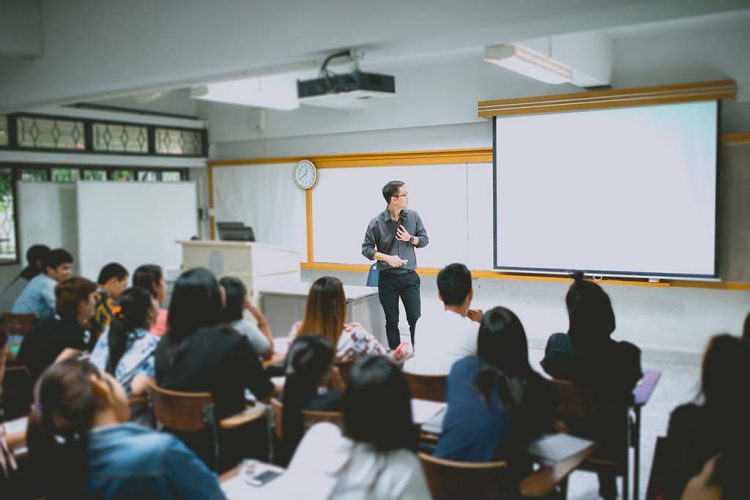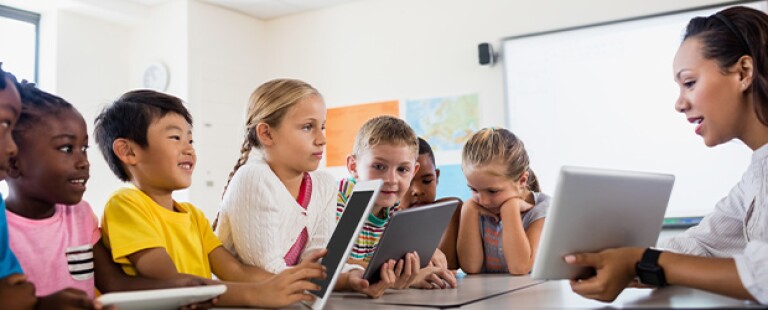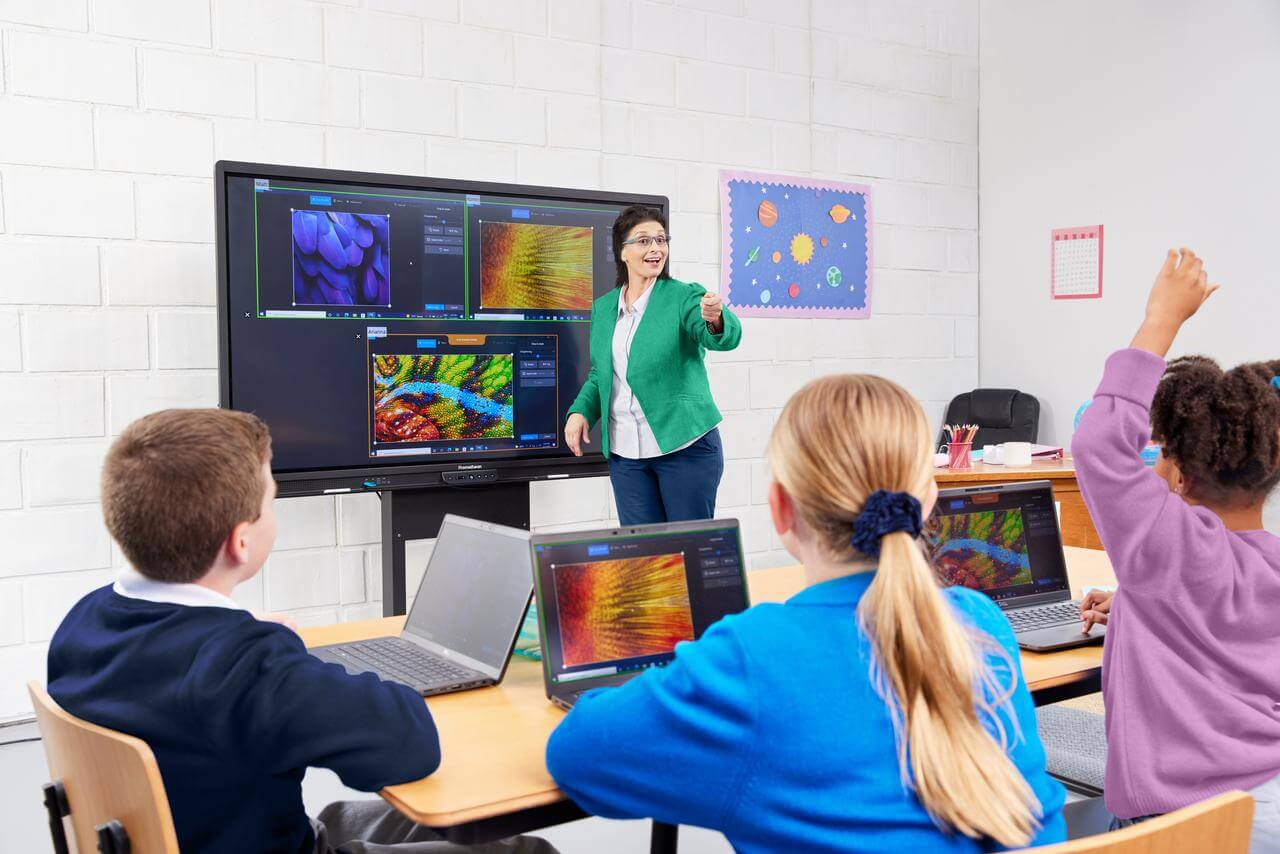Comprehensive Primary Science Tuition Singapore for Primary School Students
Comprehensive Primary Science Tuition Singapore for Primary School Students
Blog Article
Checking Out the Various Training Approaches in Main Scientific Research Education And Learning Today
The landscape of primary scientific research education and learning is advancing, with various teaching methods getting prestige in contemporary class. Inquiry-based knowing, hands-on experiments, and the assimilation of technology are redefining how teachers involve young minds. Furthermore, collective strategies and separated direction are being employed to cater to the diverse needs of students, improving both interaction and understanding. As we examine these techniques, concerns occur concerning their performance and the effects for future academic practices. What might these changes in method mean for the following generation of learners?
Inquiry-Based Understanding
Inquiry-Based Discovering (IBL) is a pedagogical method that motivates pupils to discover clinical ideas through questioning, investigation, and hands-on experimentation. This approach highlights the duty of trainees as active individuals in their discovering, promoting critical thinking and problem-solving abilities. By engaging with real-world inquiries, students end up being interested and determined, which boosts their understanding of scientific concepts.
In IBL, educators act as facilitators, directing trainees as they navigate their queries as opposed to delivering details straight. This student-centered approach permits distinction, suiting various learning designs and speeds. Trainees develop skills in developing theories, designing experiments, and examining information, which are critical for clinical proficiency.
In addition, IBL cultivates cooperation amongst pupils, motivating them to share concepts and findings. This collective query promotes social abilities and a feeling of neighborhood within the class. Additionally, the process of questions encourages resilience, as trainees learn to accept failure as a tipping rock towards understanding.
Hands-On Experiments
Hands-on experiments are a crucial element of efficient science education, enhancing the concepts of inquiry-based understanding. These experiments enable students to involve directly with clinical ideas, fostering a much deeper understanding through experiential understanding. By controling materials and observing end results, young learners can grasp abstract concepts in concrete ways.
Such tasks advertise critical thinking and problem-solving skills, as pupils hypothesize end results, conduct experiments, and evaluate outcomes. This process urges them to ask questions, fine-tune their understanding, and develop a clinical way of thinking. Hands-on experiments can be customized to varied discovering designs, guaranteeing that all pupils have the opportunity to engage meaningfully with the web content.
Furthermore, hands-on experiments often motivate cooperation among peers, promoting synergy and communication skills. Working in teams makes it possible for students to share ideas, go over searchings for, and find out from each other, which enhances their overall educational experience.
Integrating hands-on experiments into the key science curriculum not only enhances the discovering atmosphere however likewise grows a long-lasting rate of interest in scientific research. By proactively joining their education and learning, pupils are more probable to develop an enthusiasm for scientific questions that extends beyond the classroom.

Innovation Assimilation
Incorporating technology into main scientific research education has actually come to be increasingly necessary in cultivating student interaction and enhancing discovering end results. Using digital tools, such as interactive simulations, online laboratories, and instructional software, provides students with opportunities to check out clinical principles in cutting-edge ways. These sources help with a deeper understanding of complicated subjects by permitting students to imagine and adjust variables that would be impractical in a traditional class setting.
Furthermore, technology assimilation urges customized learning experiences. Pupils can progress at their own rate, revisiting challenging ideas through multimedia sources, which accommodate various discovering styles. This flexibility not only sustains private development but additionally cultivates a sense of freedom in learners.
Furthermore, technology works as a bridge to real-world science, attaching trainees with current study and professional payments. Access to on-line databases and clinical journals expands students' point of views on clinical questions and promotes vital believing skills.
Collaborative Discovering
Joint discovering plays an important duty in key science education and learning by fostering synergy and communication abilities among trainees. This approach motivates students to collaborate, share understanding, and engage in analytic, which boosts their understanding of clinical concepts. By joining team tasks, pupils learn to express their concepts, pay attention to diverse point of views, and discuss options, all of which are necessary skills in both scholastic and real-world contexts.

Study suggests that joint learning can lead to raised motivation and involvement in science topics, as trainees locate enjoyment in common experiences (primary science tuition Singapore). Additionally, this technique prepares students for future collective endeavors, furnishing them the original source with the abilities necessary for efficient synergy in college and professional atmospheres. Inevitably, embracing collective understanding in main scientific research education can significantly enhance the understanding experience and promote a deeper understanding of clinical inquiry
Set Apart Instruction

Differentiated instruction can materialize in numerous ways, such as varying the material, procedures, or items of learning. Educators might utilize tiered projects that offer varying degrees of intricacy, enabling students to function at their corresponding preparedness levels. Additionally, adaptable organizing approaches can assist in partnership among students with various capacities, promoting peer discovering.
Evaluation plays a critical role in this approach, as it educates direction and assists educators understand each pupil's special demands. Developmental evaluations, such as tests and observations, can guide educators in readjusting their approaches to improve discovering outcomes. primary science tuition Singapore. Inevitably, by implementing differentiated instruction in main science education, instructors can grow a more fair and effective knowing atmosphere, empowering all pupils to reach their full possibility in comprehending clinical phenomena
Conclusion
In summary, the varied mentor approaches in main scientific research education, consisting of inquiry-based learning, hands-on experiments, innovation assimilation, collective understanding, and separated instruction, collectively contribute to a much more efficient understanding environment. These methods promote important reasoning, problem-solving skills, and a much deeper understanding of clinical ideas. By applying these techniques, instructors can produce helpful and appealing class that resolve the diverse demands of pupils, inevitably fostering a lifelong interest in science and enhancing academic accomplishment.
Inquiry-Based Understanding (IBL) is a pedagogical method that motivates trainees to check out scientific ideas with doubting, investigation, and hands-on testing.Collective understanding plays a vital role in primary scientific research education and learning by promoting team effort and communication abilities amongst trainees.Research study indicates that collaborative learning can lead to raised inspiration and involvement go to website in scientific research subjects, as pupils discover satisfaction in shared experiences.In promoting an inclusive understanding setting, differentiated guideline arises as a vital approach to suit the varied requirements and capabilities of trainees in primary science education and learning. Eventually, by executing differentiated guideline in main science education, educators can grow a more equitable and reliable knowing setting, empowering all trainees next page to reach their full capacity in understanding scientific sensations.
Report this page